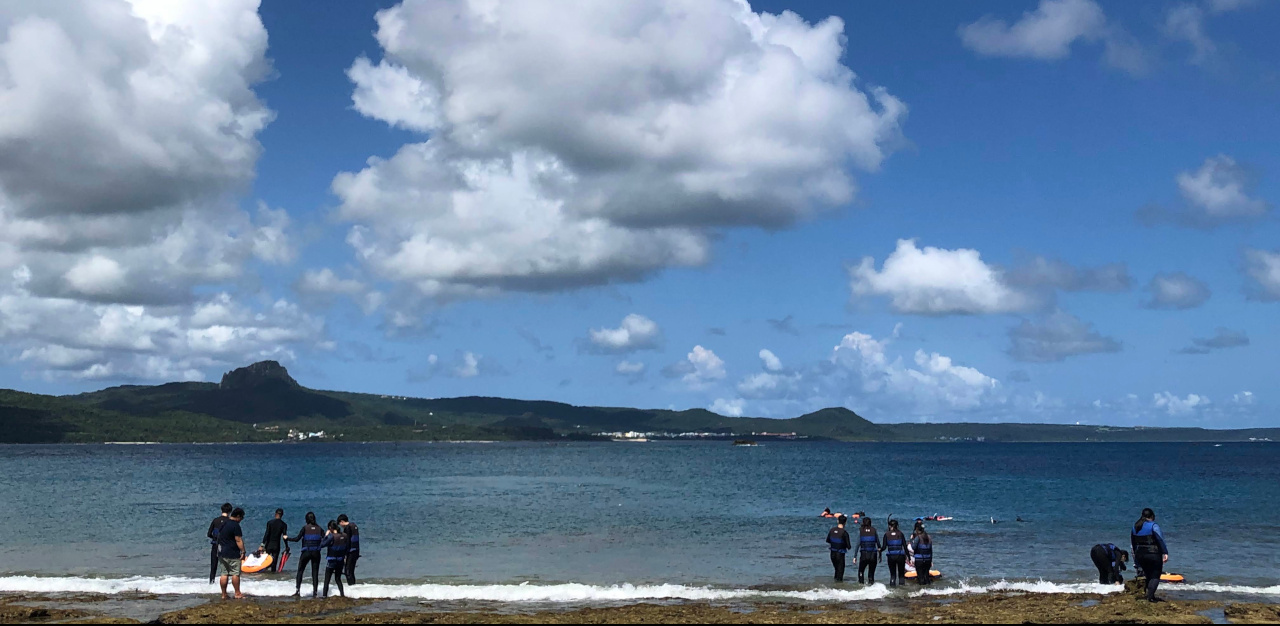2024 MARINE BIOLOGY & LAB.
This year's Marine Biology and Practicum courses were held from June 23 to 28 at the National Museum of Marine Biology, covering multiple topics such as field observation, exhibition guidance, paleontology, marine ecology, biological physiology, and environmental conservation. The courses were taught by museum professors, researchers, and senior guides, combining theory and practice. They not only provided in-depth knowledge of marine biology but also allowed students to engage with specimen collections, aquarium management, and sea turtle rescue operations through field observations and visits, sparking their interest in related research.
This course not only offers diversity and practicality but also provides students with a rare opportunity to learn from top marine biologists in the country, enriching their professional knowledge and understanding of marine conservation and education operations.
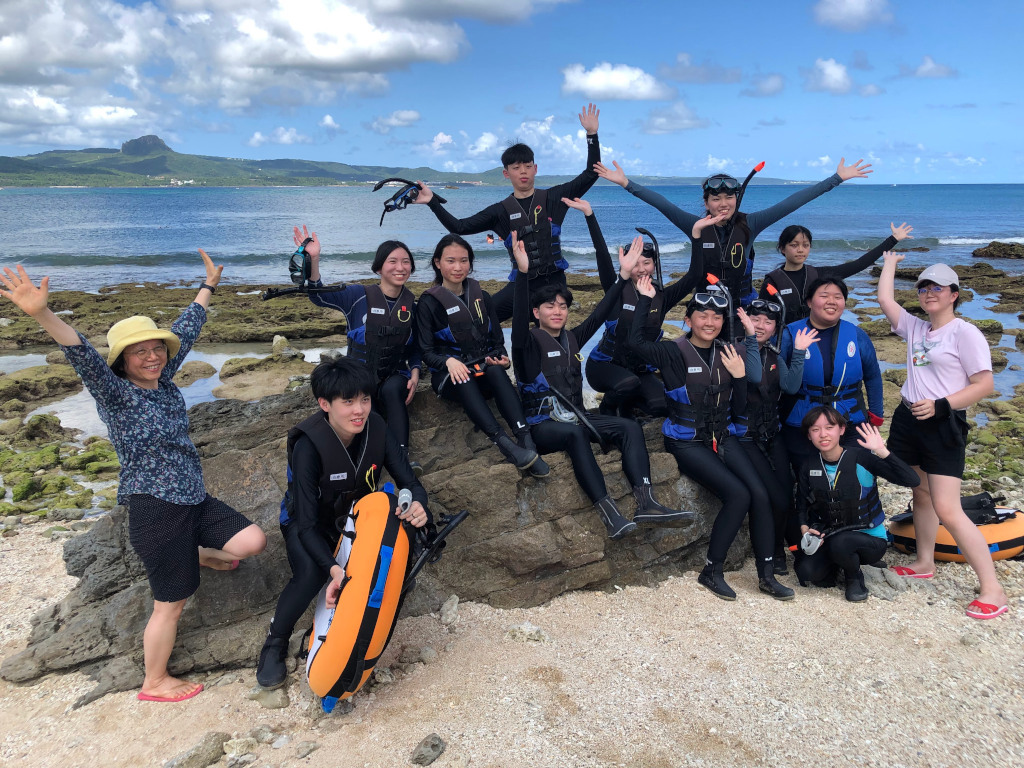
This year, snorkeling observations were arranged on the first day to allow students unfamiliar with the ocean to make direct contact, facilitating interactions and learning with teachers in the following days.
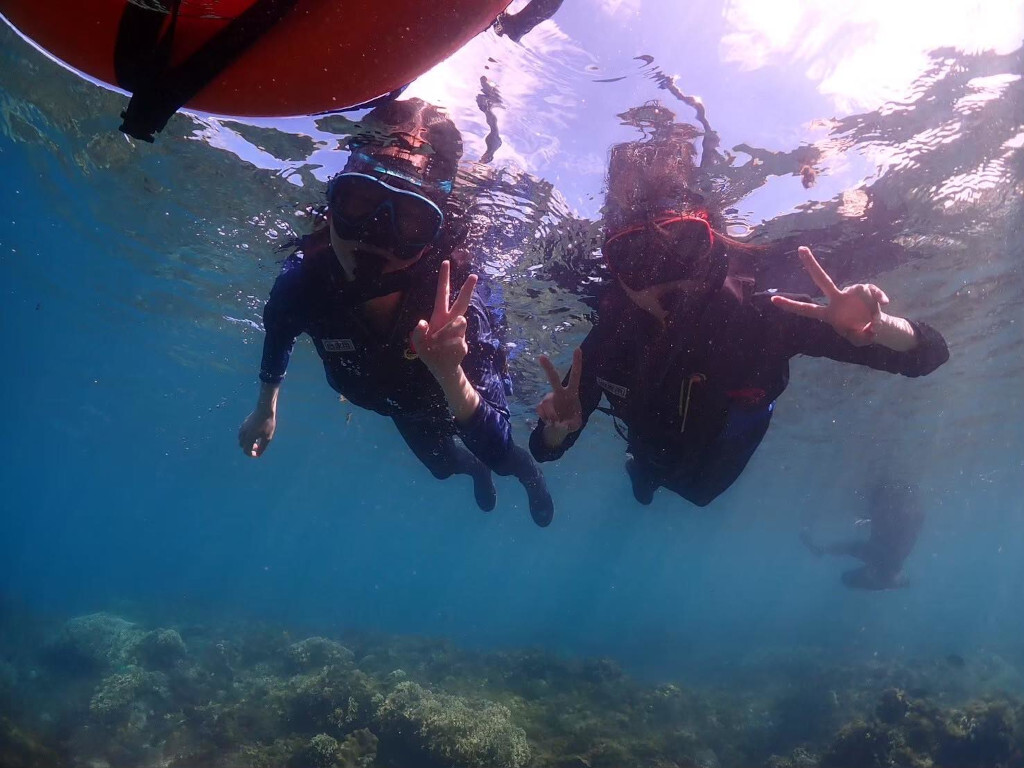
Snorkeling in the Hou-Bihu Conservation Area

Pigs roam freely in the dormitory area and are not shy, many students experience close contact with pigs for the first time
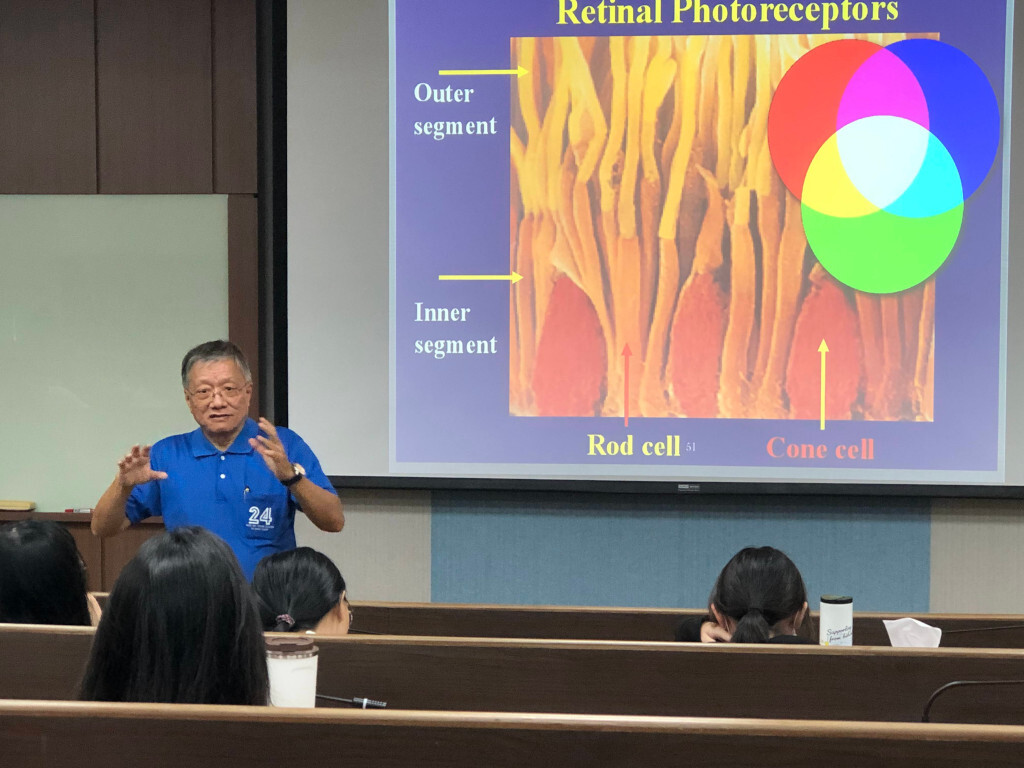
Distinguished Professor Yan Hongyang, a master scholar in fish sensory research, shared his profound knowledge of neuroscience and highly creative experimental design in an engaging, relaxed, and interesting way with students within just three hours.
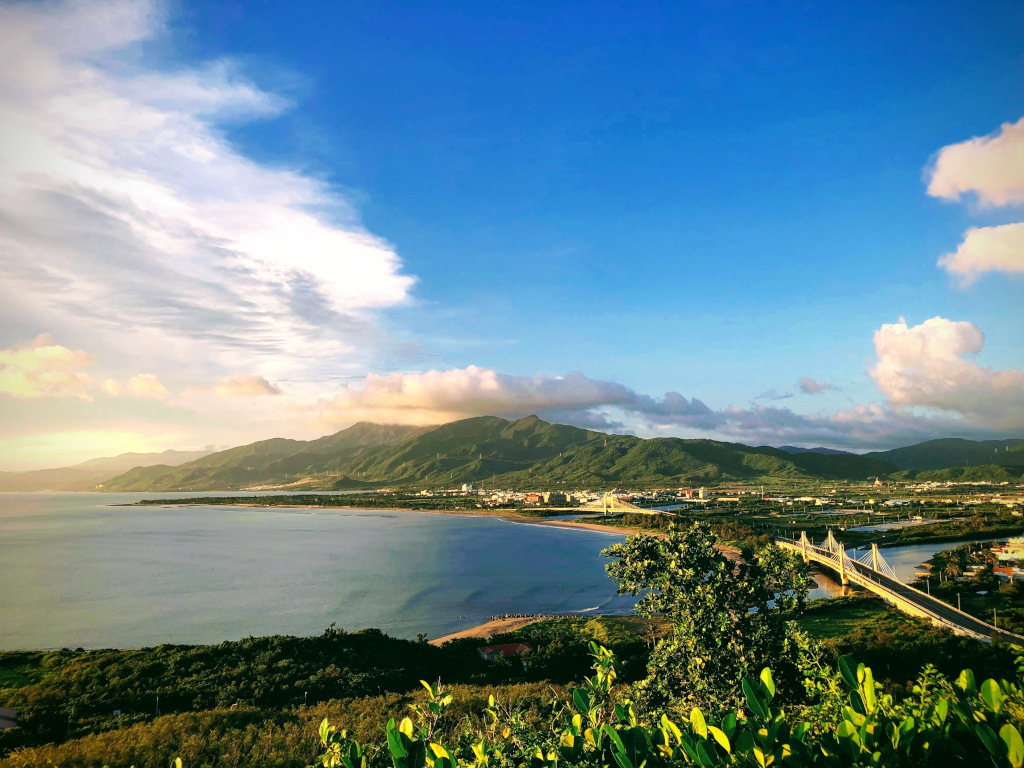
After daily classes, students can visit the nearby Turtle Mountain to watch the sunset in good weather. The Turtle Mountain viewing platform offers distant views of the southern end of the Central Mountain Range, Si Chong Creek, and Bao Li Creek, providing a great place to relax after class.
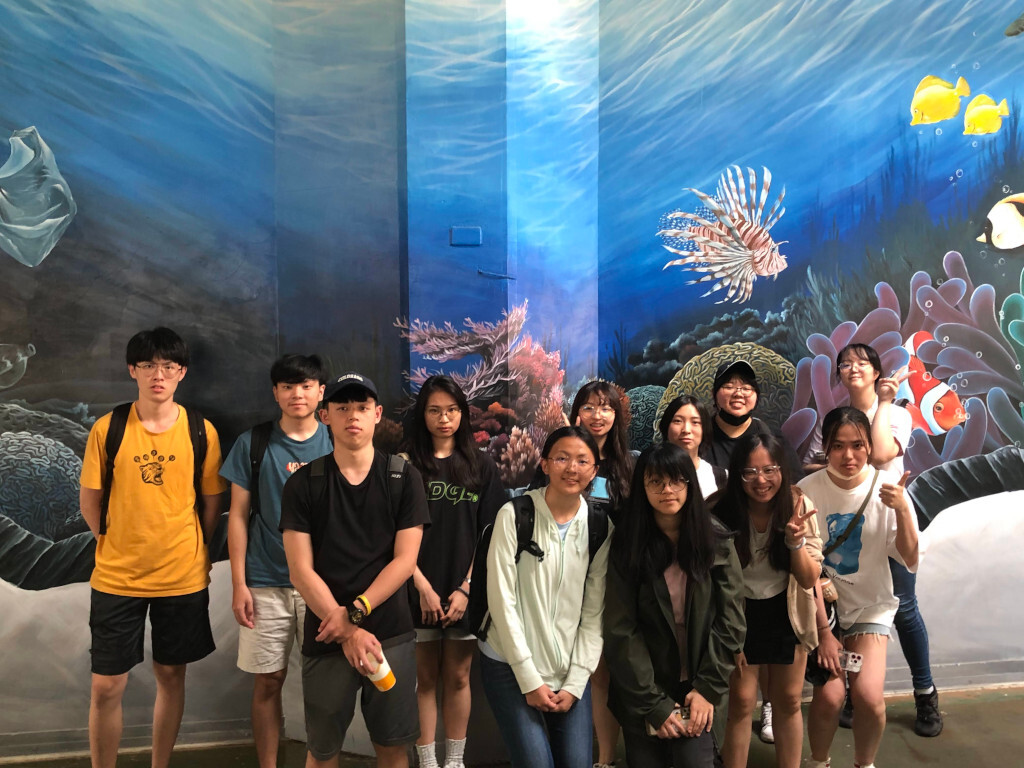
On the fourth day, the course included a visit to the exhibition area of the Marine Museum, allowing students to relax a bit during the intensive course schedule and directly observe the various marine organisms mentioned in the previous days’ lectures.
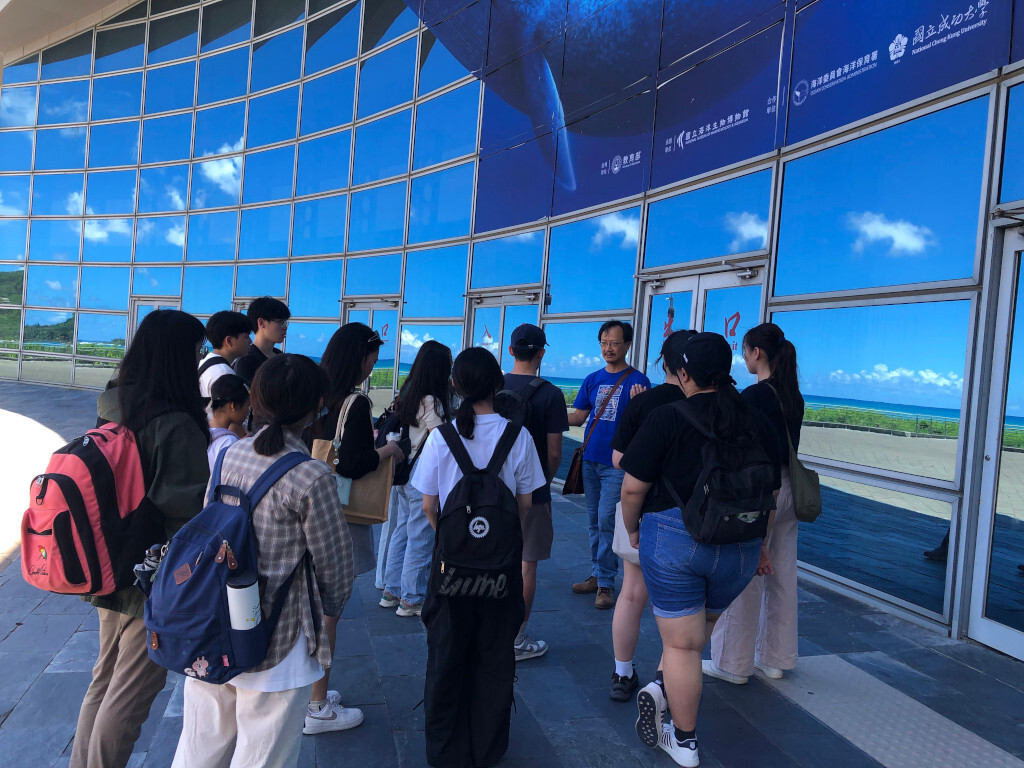
Professor Li Shiwei, who specializes in paleontology, introduced the development process of natural history and systematics during the course and led students to observe the taxonomic characteristics of the blue whale skeleton at the Marine Museum.
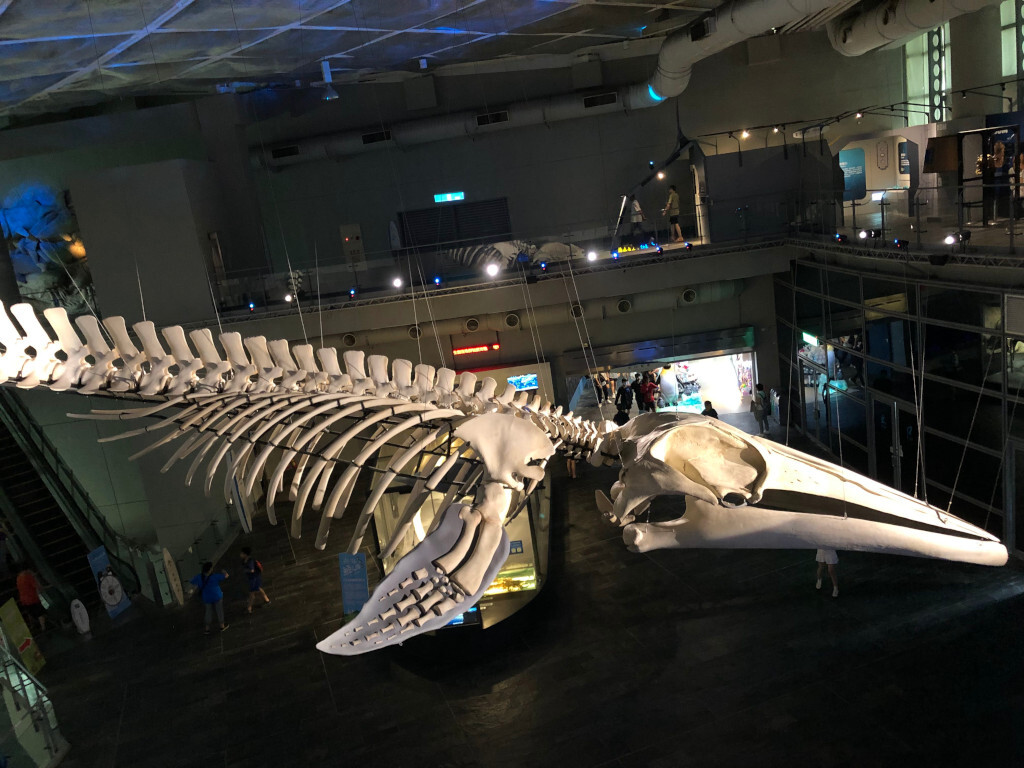
Taiwan's only blue whale skeleton specimen
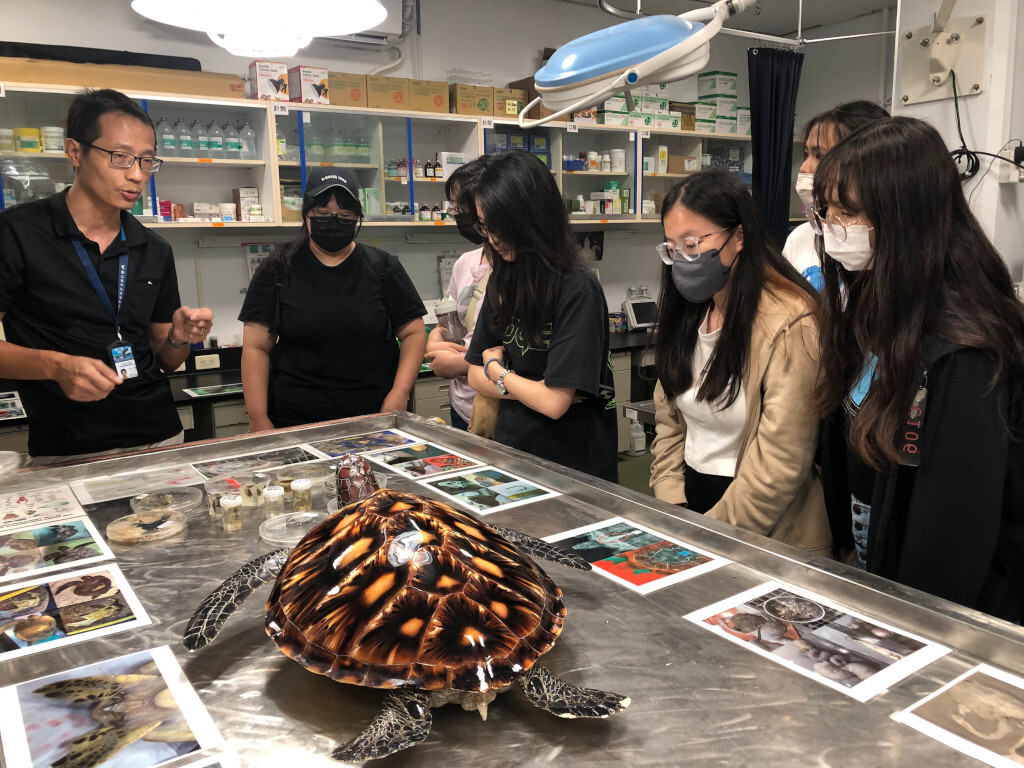
Veterinarian Li Zongxian led students on a tour of the sea turtle rescue center, helping them understand the survival challenges faced by sea turtles.

Various types of human-derived waste removed from sea turtles' bodies and stomachs.
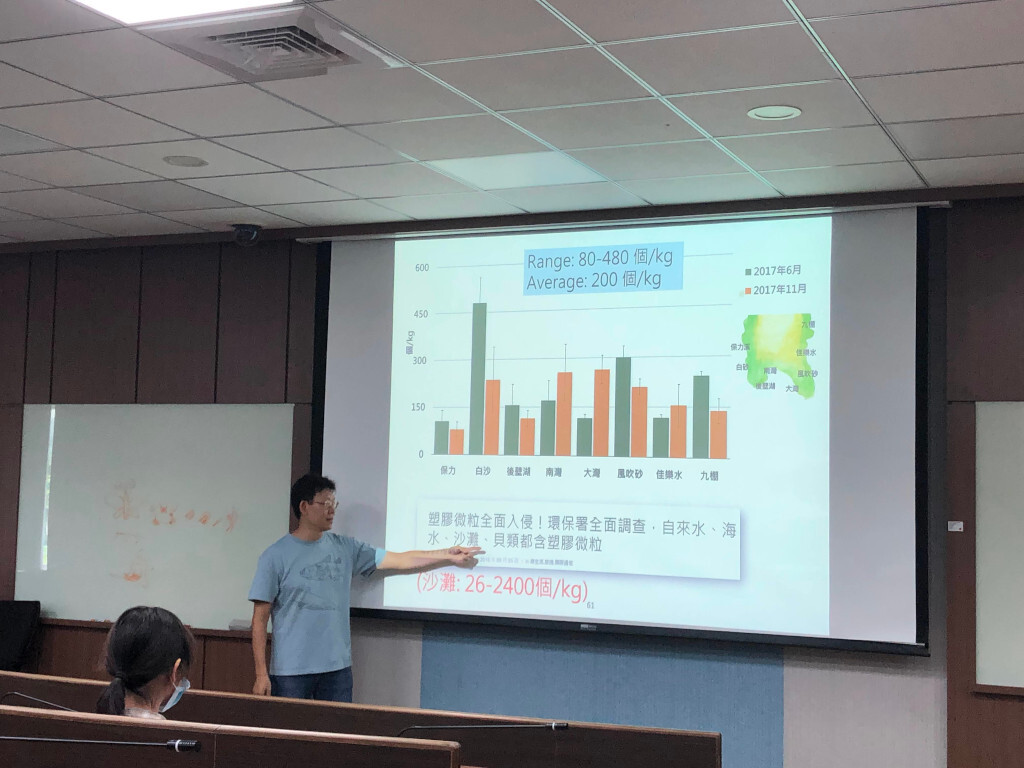
Deputy Director Chen Dehao's research on marine microplastics, guiding students to reflect and act on plastic reduction
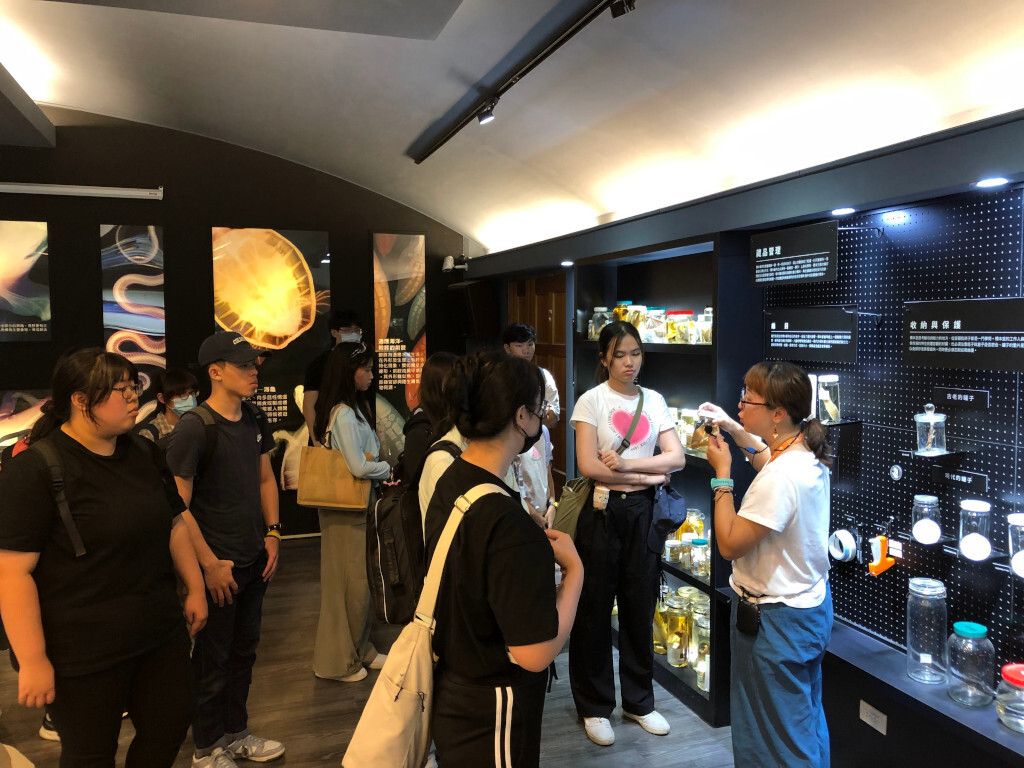
Teacher Zhang Rongjia led a tour of the specimen room, introducing many rare marine organisms and their knowledge.

